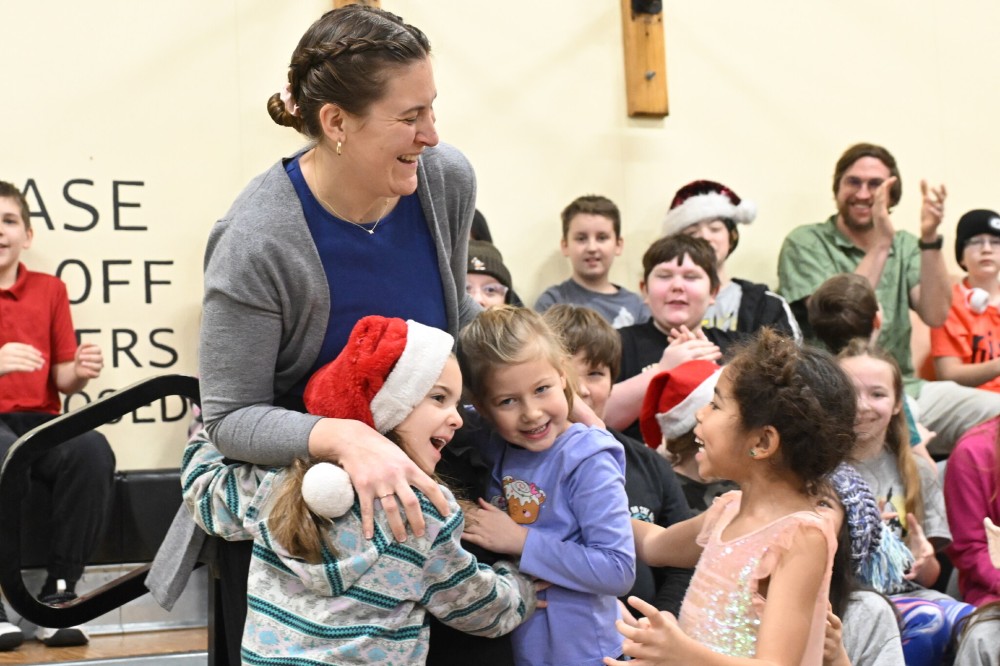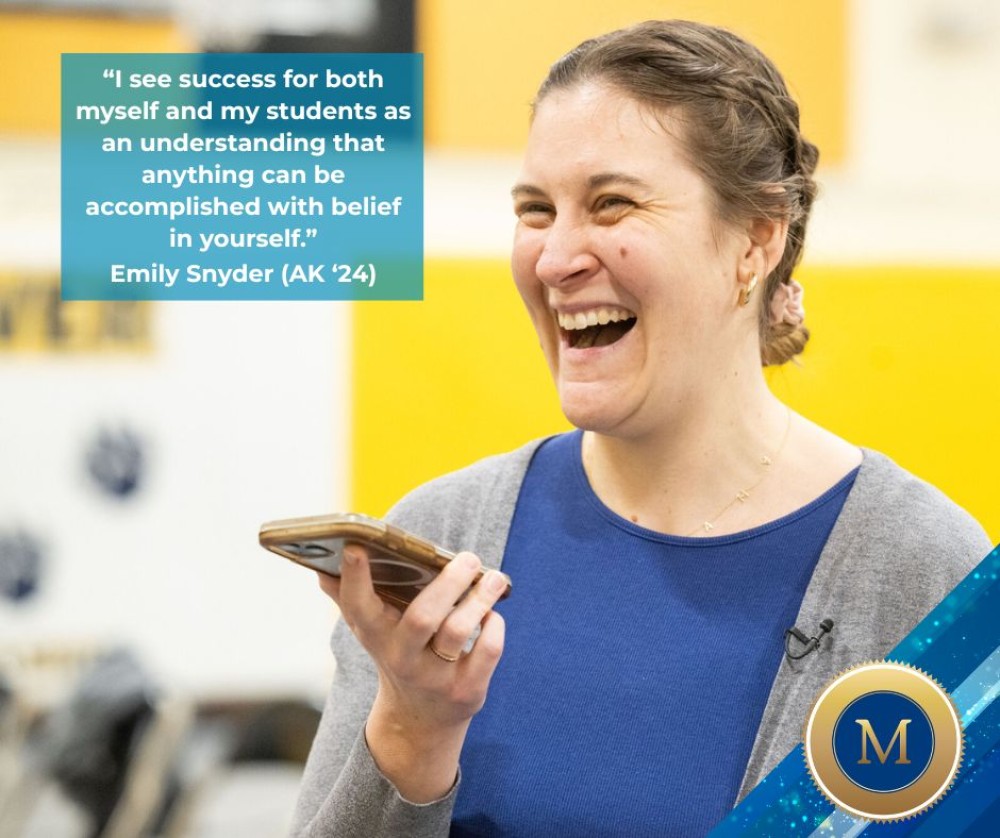Spotlight: Emily Snyder (AK '24)
July 31, 2025
Alaska Milken Educator Emily Snyder (AK ‘24) is a reading specialist and instructional coach at Nenana City School District. Through her passion for literacy and leadership in the district, Snyder helps students take ownership of their learning and drives growth and excellence districtwide. Snyder received a 2024-25 Milken Educator Award on December 19, 2024.
Milken Family Foundation: How did you feel at your Milken Educator Award notification?
I was incredibly shocked during my Milken Educator Award notification. I truly thought the assembly was to create some excitement around the standardized testing we were finishing up and was surprised to see so many people at the assembly. I remember the school board, chief from the tribe and mayor were all there. Additionally, I recognized people from the state level and was confused about their attendance. When my name was called as the Milken Educator Award recipient, I could not believe what was happening to me. I felt so honored and appreciated that someone had noticed me in this tiny town of Nenana! I also felt so grateful for all of the people, students, colleagues, jobs, mentors and experiences that have shaped me into the person and educator that I am.
MFF: How did students respond to your Milken Award?
My students were thrilled when I received the Award! I remember walking down the bleachers and a whole crowd of the youngest students gave me the biggest hugs. After the notification, many of my former students, now middle schoolers, were extremely kind about the Award. I distinctly remember one of the boys saying, ”Ms. Emily, when you got that Award, I actually cried,” and his friend sitting next to him said, “No way! I did, too.” Their message was so impactful because it revealed to me that I had impacted them as a teacher, and even through their middle school angst, they went out of their way to tell me they were touched when I received the Award.
MFF: What made you want to pursue a career in education?
When I was young, I always enjoyed working with younger children and I considered becoming an educator, but it wasn’t until I was in college that it really clicked as a career. Throughout my time there I became more aware that education is the ultimate equalizer; it allows people to come from any background and become anyone they want to be. I truly believe that education is equity and to be a part of a system that allows people to pursue dreams they may have never known is the ultimate motivator to me being a teacher.
MFF: How do you keep your reading lessons engaging and effective for all students in your rural community?
I love Anita Archer’s phrase that “everyone does everything.” My reading lessons are engaging because I strive to have every student participating all of the time. It does require scaffolding and flexibility, but I believe that every single student I teach can achieve greatness, and they know I believe in them. We use lots of white boards and choral responses to keep everyone engaged. In every lesson I also try to tell the students the goals we are looking to achieve and allow them to see that they all reached the goal by the end of the lesson. It can be as simple as telling them they will be able to give an example of a noun by the end of the lesson and then exclaiming how proud I am of them when they all write one down on a whiteboard after a quick 10-minute mini lesson. That feeling of achievement keeps them motivated.
MFF: Can you share a time when your leadership helped improve student learning or got families more involved?
This past year I was an instructional coach and reading specialist for the first time, which allowed me to assume a much more prominent leadership role. My favorite part of this role was working alongside teachers to show them how much they are already doing and what little things they can tweak to render higher results. The greatest achievement our K-6 team executed was going from only 22% of students proficient in reading to 59% according to MAP’s data. I would like to say it was my leadership, but it was the team’s collective belief that we could get the students to proficiency in reading that allowed for us to achieve so much.

MFF: What does “success” look like for you and your students in life?
I see success for both myself and my students as an understanding that anything can be accomplished with belief in yourself. There will be many difficulties and setbacks in life, but overcoming and learning from those setbacks is the ultimate form of success.
MFF: Who are your role models in teaching?
My role models in teaching are Anita Archer as a gentle demander. I strive to have the same efficiency she has in a classroom. Pam Kastner, for her unwavering support of literacy for students and her dedication to making quality teaching strategies available to everyone. Finally, my colleagues are truly my biggest role models, I learn more from them every day than from anyone else. Of my colleagues, I must give a special shoutout to my husband, whose ability to listen to his students and make them feel valued is something I strive to emulate in my interactions with all people.
MFF: How do you hope to be remembered by your students?
I hope they remember me as endlessly believing in them. I want them to know that, no matter what stood against them, I always knew they could achieve greatness. Even if they do not remember me, I sincerely hope that I demonstrated to them that they already have everything they need to be successful in life.
Don’t miss any new articles and updates from Milken Educator Awards:


